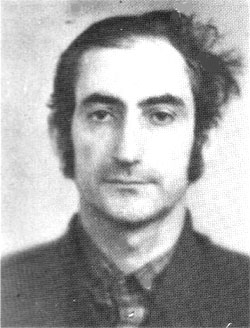 Israel Brind
|
Born in 1929 in Poltava, the Ukraine, he grew up in an assimilated family, but his encounters with anti-Semitism awoke in him his latent Jewishness and Zionism. He became an activist in Zionist activities in the company of the intelligentsia of Jewish youth, and was thus under constant surveillance by the authorities. Arrested in 1972 he was sentenced to 3 years in the Gulag, but was released in 1974, and in 1975 his dream came true - he went to Israel. |
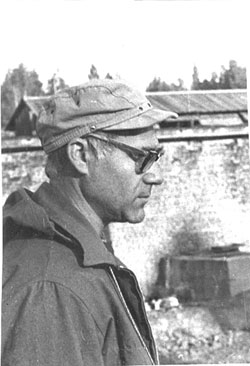 Ilya Glezer
|
Born in 1931 in Kharkov, to an assimilated family in which his mother was a Trotskyist and his father - a member of the Bolshevik Party and a military officer, who taught mathematics in a military school. However Ilya was involved in Zionist activity from 1965, when he began to study Hebrew and, at the same time, began writing letters to the government, protesting against the anti-Israeli and anti-Semitic campaign in the Soviet newspapers. He established contact with the Slepaks, Nathan Faingold, Ida Nudel, Avital Shcharansky and David Markish. In January 1972 he applied for the exit visa, but did not have time to receive an answer as, in February, he was arrested for his Zionist activities and was held prior to his trial in Lefortovo jail. According to article 70 of the Criminal Code of the Russian Federation ("anti-Soviet propaganda") he was sentenced to 3 years of high-security imprisonment in the Gulag plus 3 years of exile. He spent his time of imprisonment in Colony ╣17 in Mordovia, and then was exiled to the town of Boguchany, in a district of the Krasnoyarsk province. Released in February 1978 he left for Israel within 3 months He now lives in Raanana. This information was provided by Ilya Glezer. The photo was taken in Boguchany, where he was in exile. Note of editor: The interview with Ilya Glezer was held in 2005 and was posted to the website in 2006. In April 2007 Ilya Glezer died after a long illness. |
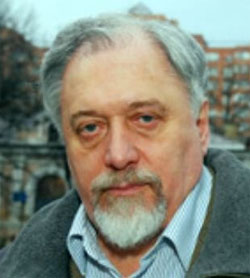 Semion Gluzman
|
Born in 1946, he was arrested in 1972 and charged with anti-Soviet agitation and propaganda because of his refusal to work as a psychiatrist in a hospital which was under the supervision of the KGB. He was sentenced to 7 years of high-security imprisonment plus 3 years in exile. He was released in 1982 but his further fate is unknown. From the "List of the Prisoners of Zion in the USSR", published by the United Council for Soviet Jews (UCSJ) and corrected on March 2-nd, 1981. |
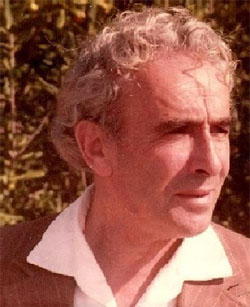 Tsfania Kipnis
|
Born in 1905 in the vicinity of Zhitomir, he studied in a Jewish gymnasium (secondary/high school in Hebrew). As a youth he participated in Jewish movements and was the organizer of the committees of "Ha-Shomer Ha-Tsair" and "Ha-Halutz" in the Ukraine. At 18 he was put in jail for Zionism. Later, after becoming an artist, he connected all his art with Jewish life, working in many Jewish theaters and publishing houses - in Kiev, Kharkov, Birobidzhan, Moscow, Khabarovsk, Minsků During the WWII he was an officer in the Red Army, marched from Minsk to Berlin and was honorably discharged in 1946 with the rank of captain, decorated with many orders and medals. After the creation of the State of Israel the desire to live in Israel became the purpose of his life. Kipnis was not a refusenik - he was an activist for repatriation to Israel, a teacher of Jewish history, language, culture, literature and folk traditions. An exit visa was given to him a couple of months after application, and on November 29, 1972, he was allowed to get as far as the border town of Brest. At the border, however, he was forced from the train and delivered to the investigation jail of the Minsk KGB where he spent half a year in solitary confinement. The charge: "Creation and management of underground Zionist anti-Soviet organizations". Under the pressure of the international community, the investigation was interrupted and Kipnis arrived in Israel on July 13, 1973 at the age of 67. On April 26, 1982 Tsfania Kipnis had a heart attack and passed away. From the eulogy in the "Krug" magazine #258 from May 26-th, 1982. Information provided by Ernst Levin. |
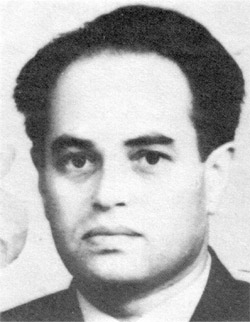 Lazar Lubarsky
|
Born in 1926 in Beltzy, he was arrested in Rostov in 1972 and sentenced to 4 years imprisonment, which he spent in the Belgorod region. Released in 1976, he now lives with his family in Tel Aviv. From the book "Our Ida Nudel. Testimonies of Former Prisoners and Refuseniks", Tel-Aviv, 1980. |
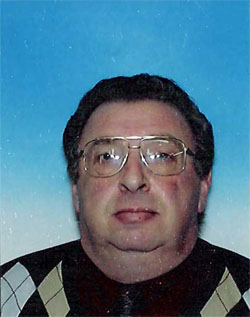 Mark Napshitz
|
He was born in 1948 in Moscow to a family, which observed Jewish traditions. In 1956 his father, being on a business-trip to Denmark, decided not to come back to the USSR, and later moved to Israel. He was tried "in absentia" and sentenced to 25 years imprisonment. Mark graduated from the Moscow Medical Dental Institute in 1970 (on his application forms he indicated that his father died) and in 1971 he applied for the exit visa to go to Israel, but was refused. In 1972 he was arrested and sentenced to 1 year of imprisonment for the evasion of military reserve training, but was pardoned in the amnesty honoring the 50-th anniversary of the creation of the USSR. In 1974 he was arrested again, this time for the participation in a demonstration of refuseniks, and sentenced to 5 years exile. He was released in 1979. In 1985, as a result of a deal between M. Gorbachev and F. Mitterand, he received permission to go, and together with his mother arrived in Israel. From the interview given to Aba Taratuta in 2003. |
 Itzhak Shkolnik
|
Born in 1930 near Vinnitsa, the Ukraine, he began to study Hebrew in his youth and thoroughly observed Jewish holidays and traditions. He was involved in Zionist propaganda and in1972 he was arrested for anti-Soviet activity and espionage for England (which was later altered to espionage for Israel) and was sentenced to 8 years in the Gulag plus 10 months exile. He was released in 1980; but only in 1985 was he able to join his wife and daughter in Israel. |